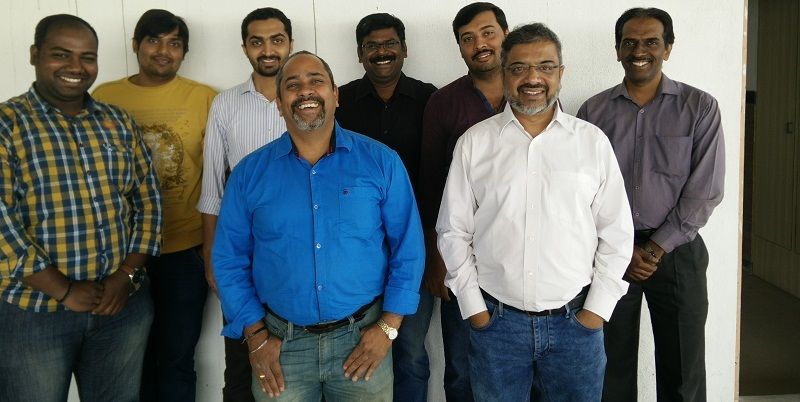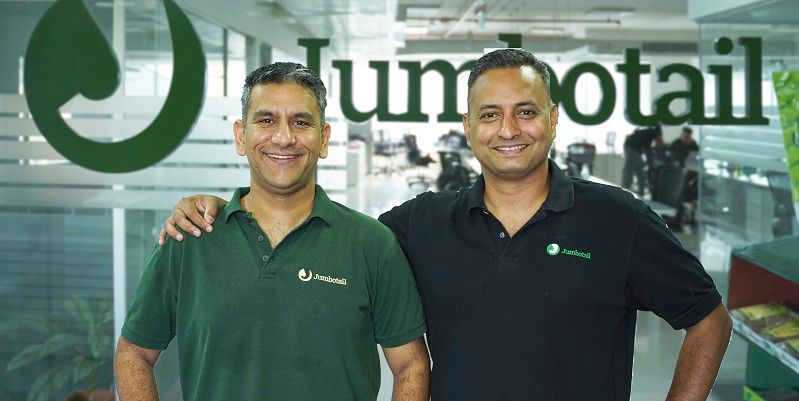8 jobs and 3 startups later, founders get a taste of success with BluPay
Twenty-five years is a long time to be in the business of technology. It is sure to make one a treasure trove of knowledge on the industry. Pavan Panchamukhi and Prashanth Gangisetty glow in that experience of learning, which they picked up through the years. They had a middle-class upbringing in Pune and Bangalore. Their current company, enEXL Technologies, has launched BluPay, an app which offers a proximity payment solution, also built for the Unified Payments Interface (UPI) platform, for all retailers across the country. The platform allows consumers to bust queues, by scanning codes and getting relevant content, and can use all kinds of payment platforms to complete the transaction. BluPay is currently piloted in a $3-billion Indian retailing company to help their consumers to bust queues. If successful, they could scale across their 1,500 stores across the country overnight.

Pavan’s career began with eight jobs and he set up three startups. Prashanth began his career with eight jobs and founded a couple of startups.
“With each stint we have learnt a thing or two about what to do and what not to do. It has also made us understand how to scale businesses,” they quip.
A humble beginning
In 1991, Pavan joined a corporate in technology sales and realised that he was someone who would like to work on his own. His first startup came at the beginning of the dotcom revolution, in 1998. Crayons Multimedia, which built video editing software, did not scale up. However, the company built an ERP tool for the textile industry, which became successful. The company made money and poured it all into R&D for the video editing suite, which ultimately did not take off. After this company, Pavan joined with a few friends to build and set up a Bluetooth product company called TELiBrahma. However, he had to exit the business because he wanted to take another direction with the technology.
After a couple of years he founded Vpe Knowledge Services, which built mobile services for enterprises and also education services using Bluetooth on tablets. Failing to raise moneny, the business did not take off. This was in 2013, when Pavan decided to change the game. Between 1991 and 2013 he had also worked at eight jobs.
It was in 2013 that he met Prashanth Gangisetty, who had 20 years experience in the corporate world, and they decided to use Bluetooth to change the way retailers targeted their customers, allowing them to be freed from long queues on weekends.
BluPay
In two years, the company readied a product that could change retailing and the way people transacted in stores. The retailing industry is $600 billion in size, of which 10 percent is organised retailing, which works mostly on card machines and cash payments. Today, stores have no quick checkouts because financial technologies and app-based payments have not caught up with them. Indian retailers spend only three percent of their revenues on technology, which is estimated to be around Rs12,000 crore in India. These technologies are legacy platforms that enable data capture and are not deemed consumer-friendly. Using this as the hypothesis Pavan and Prashanth began creating a platform for stores to do quick consumer checkouts. “This immediately increases the bottomline of the companies because there are many additional customers coming into the store for such services,” says Pavan. This entire year the enEXL Technologies team has created a proof of concept for a couple of retailers, which was rigorously tested to go global.
The business model for the company is based on an annual maintenance contract with outcome-driven incentives. The competition for this company include Mobmerry, TorchFi and Mobstac and Bosch’s Bezirk. Bezirk has raised $4 million from Bosch and then there are similar companies like Xlogix, which are helping customers bust queues. All of them have pay-as-you-go and annual maintenance contract-based business models.
The system will connect to Bluetooth routers, which will allow customers to scan (from the BluPay app) all the products and immediately click on 'pay' using different financial platforms. The scans capture the information at the quick checkout tills at the store, and the consumer is out of the store in minutes. Financial technologies are morphing payment and content platforms. On one level they will understand shopping habits and on the other level their payment cycles. “The retail industry is changing because, today, payment solution and customer targeting solutions are on one platform today,” says Premkumar, founder of SnapBizz, a company that works with kirana stores to address their stocking and credit habits. Even if retailers increase their spending by one percent on new technologies, there is a Rs 6,000-crore opportunity going forward. And Pavan and Prashanth being at the right spot at the right time will help them go a long way to build a valuable company.











![[Startup Bharat] Y Combinator-backed BeWell Digital is enabling the digital transformation of radiologists](https://images.yourstory.com/cs/2/40d66ae0f37111eb854989d40ab39087/ImagesFrames31-1648033042143.png)